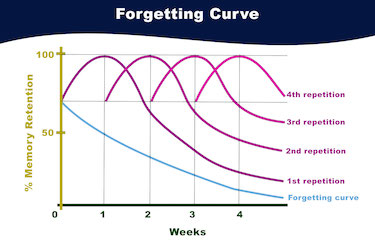The sense of smell is a powerful tool that affects our memories in ways we often overlook. Research shows that specific scents can trigger vivid recollections and strong emotions, connecting us to moments from our past. It’s fascinating how a whiff of a familiar fragrance can transport us back to cherished memories or significant life events.
Our olfactory system interacts closely with brain areas tied to memory and emotion, making smells unique triggers for recall. As we explore this link, we’ll reveal how understanding this connection can benefit our daily lives, whether in study techniques or enhancing personal experiences.
Key Takeaways
- Smell is closely linked to memory retrieval and emotional responses.
- Scent can be used as a practical tool to improve recall in various situations.
- Cultural and personal experiences shape our unique scent memories.
The Science of Smell and Memory
The Role of the Olfactory System
The olfactory system is crucial for detecting scents. It begins at the nasal cavity, where odour molecules bind to receptors. These receptors send signals to the olfactory bulb, which processes the information.
From the olfactory bulb, signals travel to the piriform cortex. This area plays a key role in identifying and differentiating smells. Notably, smell is the only sense that bypasses the thalamus, going directly to the brain.
This unique pathway allows for rapid processing, which is vital when we encounter familiar scents. As we take in different smells, we create a sort of "aromatic memory" that can trigger emotional responses tied to past experiences.
Memory Formation and the Limbic System
The limbic system is at the heart of our emotional and memory processes. It includes structures like the amygdala and hippocampus.
The amygdala associates smells with emotions, while the hippocampus is essential for forming new memories. This means that a smell can evoke powerful feelings and recollections based on previous experiences. For instance, the aroma of fresh baked goods might remind us of home and family gatherings.
Our brain links olfactory information with context, making it easier for us to recall specific memories. This explains why certain scents can bring back vivid recollections, sometimes even years later.
Neuroscientific Perspectives on Smell-Induced Recall
Neuroscience sheds light on how smell influences memory recall. Research shows that when we smell an odour, our brain activates areas related to memory, particularly the hippocampus and amygdala.
Studies indicate that smells can evoke memories more strongly than other senses. This phenomenon occurs because the brain regions processing smell and memory are interconnected.
As we engage with different scents, we reinforce pathways in our brain that facilitate easier recall later on. This connection helps explain why perfumes, foods, and environments can invoke nostalgia and strong emotional responses, forming a rich tapestry of our personal histories.
The Emotional Impact of Scent
Scent holds a unique power in shaping our emotional lives. From evoking nostalgia to influencing well-being, the connection between smell and emotion provides profound insights into our experiences. We explore how scents can trigger memories, impact our feelings, and enhance our emotional health.
Emotional Responses and Nostalgia
When we encounter a familiar scent, it often triggers strong emotional responses. This reaction is partly due to how our brains process smells. The olfactory bulb connects directly to areas linked to emotions, such as the amygdala.
For instance, a whiff of freshly baked bread can transport us back to childhood kitchens. This sensory experience makes scents powerful tools for evoking nostalgia. Smells can remind us of specific moments or people, creating vivid autobiographical memories.
Trauma and Olfactory Memories
Scents can also play a significant role in trauma. Certain smells may provoke distressing emotional memories. For some, a scent associated with a traumatic event can trigger anxiety or panic. This is due to how closely linked our olfactory senses are to the emotional centres of the brain.
Coping mechanisms, like aromatherapy, can be beneficial in these situations. Using soothing scents can help mitigate negative emotional responses and support recovery. Recognising this link allows us to be more mindful of the scents we encounter daily.
The Role of Scent in Well-Being
Scent impacts our emotional well-being in various ways. Aromatherapy has gained popularity for its ability to elevate mood and reduce stress. Specific scents, like lavender or citrus, are known for their calming effects.
Incorporating scents into our daily routines can enhance our overall emotional responses. We can create an environment that supports relaxation and positivity through mindful scent choices. This practice can lead to improved emotional health and a greater sense of well-being in our everyday lives.
Scent and Cognitive Functions
Scent plays a significant role in our cognitive functions, especially as we age. Understanding how our sense of smell interacts with memory and mental clarity can help us maintain our cognitive health. We will explore the connection between scent and aging, how olfactory function relates to cognitive decline, and ways scents can enhance mental clarity and reduce stress.
The Link Between Scent and Aging
As we age, our sense of smell tends to diminish, a condition known as anosmia. This decline is not just a simple loss of fragrance but can also affect our cognitive health. Research suggests that a reduced sense of smell may signal the onset of conditions like Alzheimer’s disease or dementia.
When we encounter specific scents, they can trigger vivid memories from our past. These scents can evoke feelings of nostalgia and comfort, aiding our emotional well-being. Maintaining an active sense of smell may help to stimulate our brains and possibly slow down cognitive decline.
Olfactory Function and Cognitive Decline
Olfactory function is closely linked to the brain’s memory pathways, particularly the hippocampus. Studies show that a decline in our sense of smell might be an early warning sign of dementia or Alzheimer’s disease. For example, individuals with cognitive impairments may struggle to recognise common scents.
Incorporating scent stimulation can be beneficial. Engaging with scents linked to positive memories may enhance mood and mental function. By introducing familiar and comforting aromas, we can help improve our cognition and emotional health.
Enhancing Mental Clarity and Stress Reduction through Scent
Scents such as lavender and citrus have shown promising effects on our mental clarity. Aromatherapy, which uses essential oils, can help us reduce stress and improve focus. Studies indicate that pleasant scents may lower cortisol levels, leading to a calmer state of mind.
Using scents strategically in our environment can create a space conducive to productivity and relaxation. For instance, diffusing essential oils while studying or working can enhance our concentration and cognitive function. Incorporating scents into daily routines can significantly improve our mental clarity and overall well-being.
The Practical Applications of Scent Memories
Scent memories offer unique ways to enhance memory retention, engage consumers in marketing, and support personal histories through reminiscence therapy. By exploring these areas, we can see how scents can shape our experiences and connections.
Aromatherapy and Memory Retention
Aromatherapy uses essential oils to promote physical and mental well-being. Research shows that certain scents can trigger olfactory memories, leading to improved memory retention. For example, rosemary is connected to better performance in memory tasks.
We can benefit from creating a learning environment infused with beneficial scents. Here are some essential oils known for their memory-enhancing qualities:
- Rosemary: Boosts alertness and improves concentration.
- Peppermint: Increases mental clarity and energises the mind.
- Lemon: Uplifts mood and encourages a positive atmosphere.
Incorporating these scents into study routines can help us recall information more effectively.
Scent in Marketing and Branding
Scent plays a significant role in marketing and branding strategies. Businesses often use specific scents to create a memorable atmosphere. This connection between scent and emotions can lead to stronger brand loyalty.
For example, a bakery might use the smell of fresh bread to evoke feelings of comfort and nostalgia. By linking a pleasant aroma with their brand, companies can enhance customer experiences.
Here are effective tactics brands may use:
- Signature scents: Creating unique scents that customers associate with their brand.
- In-store scents: Using aromas to influence purchasing decisions and extend shopping time.
These strategies make scent an essential tool in successful marketing.
Reminiscence Therapy and Personal Histories
Reminiscence therapy involves using scents to trigger memories from the past, helping individuals connect with cherished moments. This approach can be particularly beneficial for older adults and those with memory impairments, such as dementia.
By introducing familiar scents, we can stimulate memories and encourage conversations about personal histories. Aromas such as lavender can evoke soothing feelings, while baking smells can bring back family gatherings.
In practice, reminiscence therapy includes:
- Creating scent boxes: Filled with items like herbs, spices, or perfume that rekindle memories.
- Guided sessions: Facilitating discussions around specific scents to encourage storytelling.
These strategies can enrich our connections to the past while fostering emotional well-being.
Cultural and Personal Aspects of Smell-Triggered Memories
Our experiences with scent are deeply intertwined with our emotional lives. Scents often evoke cherished moments and shape our identities. They can transport us back to significant times in our lives, revealing the strong connection between smell and memory.
Scent as a Gateway to Cherished Moments
Smell has a unique ability to unlock vivid memories. For many of us, certain fragrances spark recollections of childhood memories or significant life events. The scent of freshly baked bread may remind us of family gatherings, while the smell of rain could transport us back to summer afternoons.
This phenomenon is often highlighted in cases where specific smells can bring back feelings tied to past experiences, including nostalgia and joy. Our brains are wired to connect these aromas with the emotions we experienced during those times. These powerful scent-triggered memories can be comforting or even healing, especially when linked to positive experiences.
Signature Scents and Personal Identity
Signature scents play a key role in how we express our identities. Many individuals choose a specific fragrance that resonates with them and becomes part of their personal brand. These scents are often associated with key life events, transformations, or relationships.
When we encounter our own fragrance or that of someone significant, it may evoke smell-induced memories. This powerful connection reinforces our identities and anchoring us to the people and moments we cherish. Our choice of scent can indicate our personality, mood, or even our culture, making olfactory memory a vital aspect of our social lives.
Olfactory Memory in Literature and Art
Literature and art often explore the intricate connections between scent and memory. The "Proust phenomenon," named after French writer Marcel Proust, describes how specific odours can trigger vivid memories. Proust famously illustrated this idea with the image of a madeleine cake bringing back memories of his childhood.
Artists and writers use scent to evoke emotions and memories in their work. The use of fragrance in films, books, and paintings can guide viewers and readers through emotional landscapes. This use of olfactory memory invites us to reflect on our own experiences, enhancing the richness of our personal and cultural narratives.





















